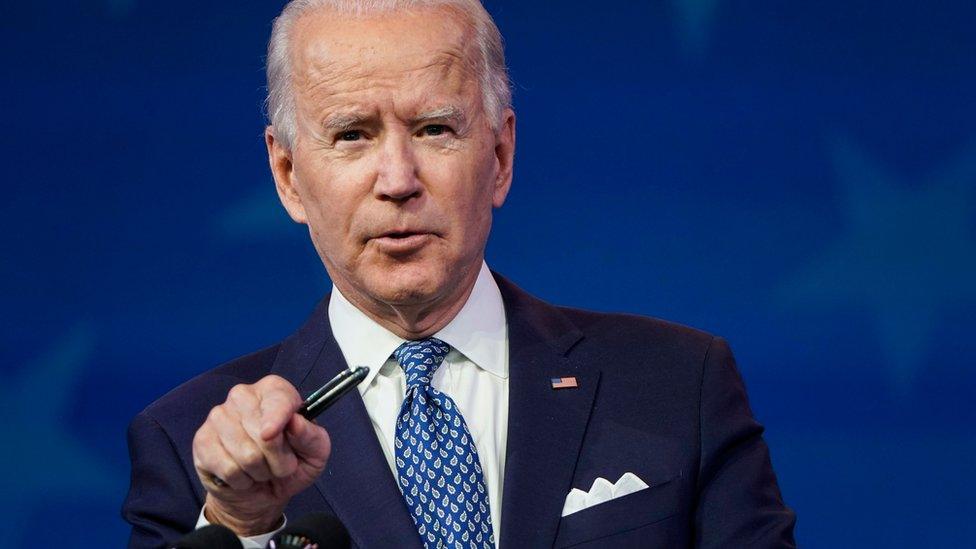Trump’s Twitter downfall
- Published
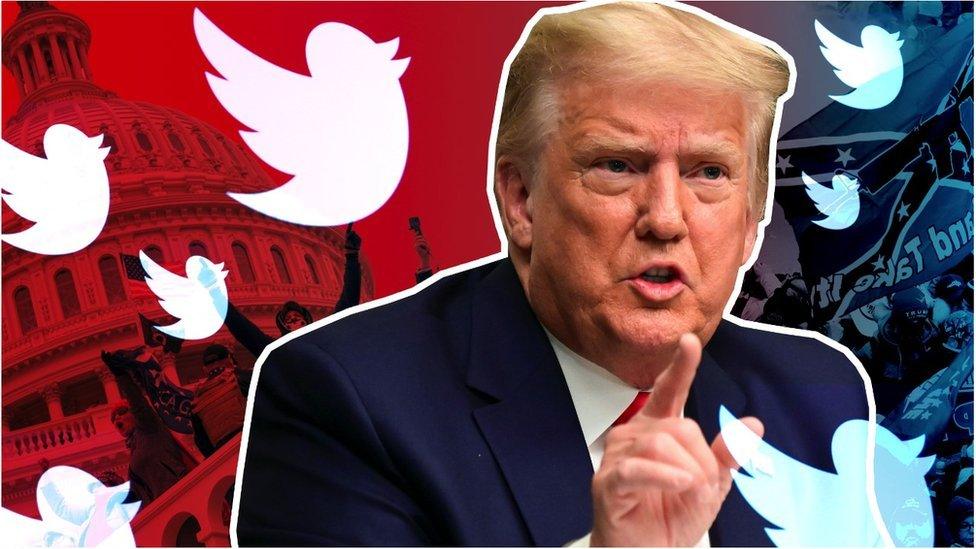
The president says he hates Big Tech. Yet he has loved using Twitter.
He's used it as a way, for more than 10 years, to bypass the media and speak directly to voters.
The 280 characters fits neatly with his style of political engagement - broad brushstrokes rather than details.
And Twitter has undoubtedly benefited from President Trump too, the place to go to hear the latest musings from the most powerful person on the planet.
That decade-long symbiosis has been ended with a shuddering halt.
Immediately after the deadly riots, Twitter locked the President's Twitter feed and asked Mr Trump to delete three tweets for violations around its Civic Integrity policy., external, which he promptly did.
After the suspension he tweeted as a new man, the nonsense claims of mass voter fraud replaced with a more conciliatory tone.
Privately though Twitter was pondering whether it had gone far enough. Facebook had already acted, banning Donald Trump "indefinitely".
After more than 48 hours of consideration, Twitter acted. It made unquestionably the most important moderation decision in its history. It banned the president of the United States.
Exception to the rules
Some have asked why he wasn't kicked off sooner.
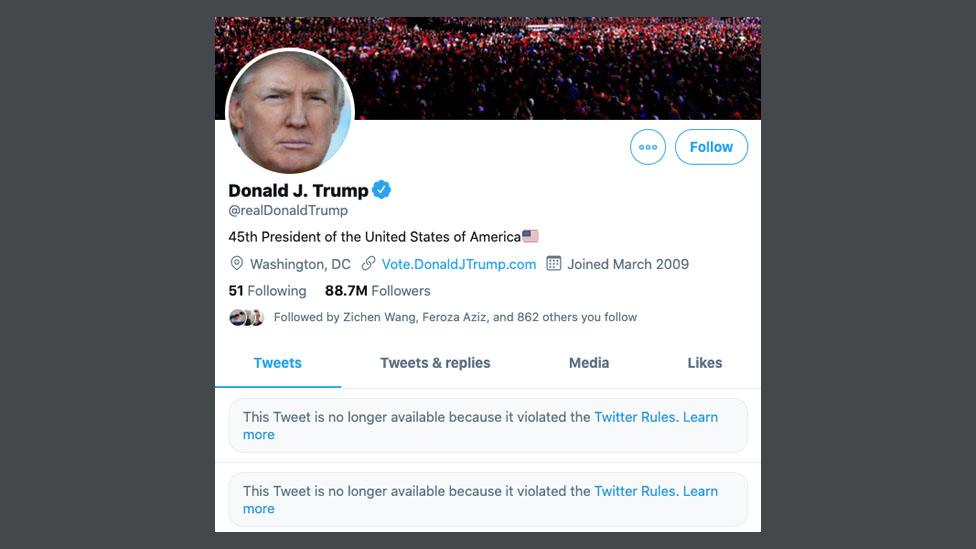
Mr Trump or one of his associates appears to have deleted some of his most recent tweets
Well, Twitter has very specific rules about world leaders.
"We recognise that sometimes it may be in the public interest to allow people to view tweets that would otherwise be taken down," Twitter's rules say.
"At present, we limit exceptions to one critical type of public-interest content - tweets from elected and government officials."
Chief executive Jack Dorsey had felt it was in the public interest to keep the account active, albeit with warning messages.
"No one is turning a blind eye," a senior source told the BBC before the ban.
In short, Mr Trump had been allowed to remain on Twitter - despite numerous breaches of its rules - because he is the president.
With less than two weeks to go of Trump's presidency, many social media companies have now decided enough is enough.
Critics say the outgoing president's words on social media, for years, helped to incite Wednesday's storming of Capitol Hill.
All the big social media companies have made it clear that - as a private citizen - if you continually look to peddle conspiracy theories and promote extremism, you should expect to be kicked out. With just a few days of his presidency left, Mr Trump is already being held to a different standard - his privileges stripped.
What's driving this? To be cynical, social media companies are acutely aware that President-elect Joe Biden believes Big Tech hasn't done enough to quell fake news and hate speech on their platforms.
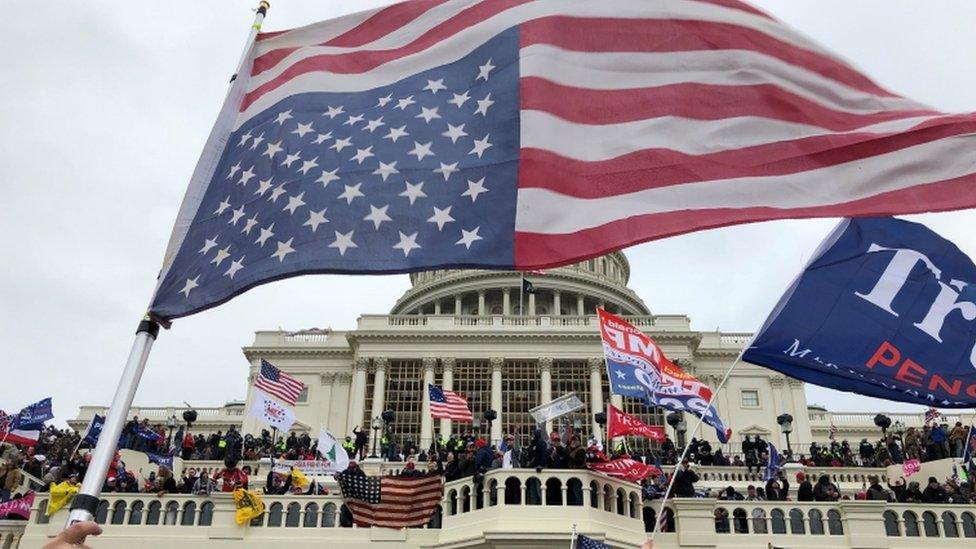
Rioters broke into Congress after a speech by Mr Trump on Wednesday
They are now desperate to show that they can, in fact, police their own platforms without the need for stringent legal reforms.
What better way to show you're serious than to act on Mr Trump's misinformation?
What will Mr Trump do next? Well he's already said he's looking into the possibility of building his own platform in the future.
But for now he's consigned to the fringes of the internet. Can Trumpism survive without Big Tech? We're about to find out.
James Clayton is the BBC's North America technology reporter based in San Francisco. Follow him on Twitter @jamesclayton5, external.
Related topics
- Published8 January 2021
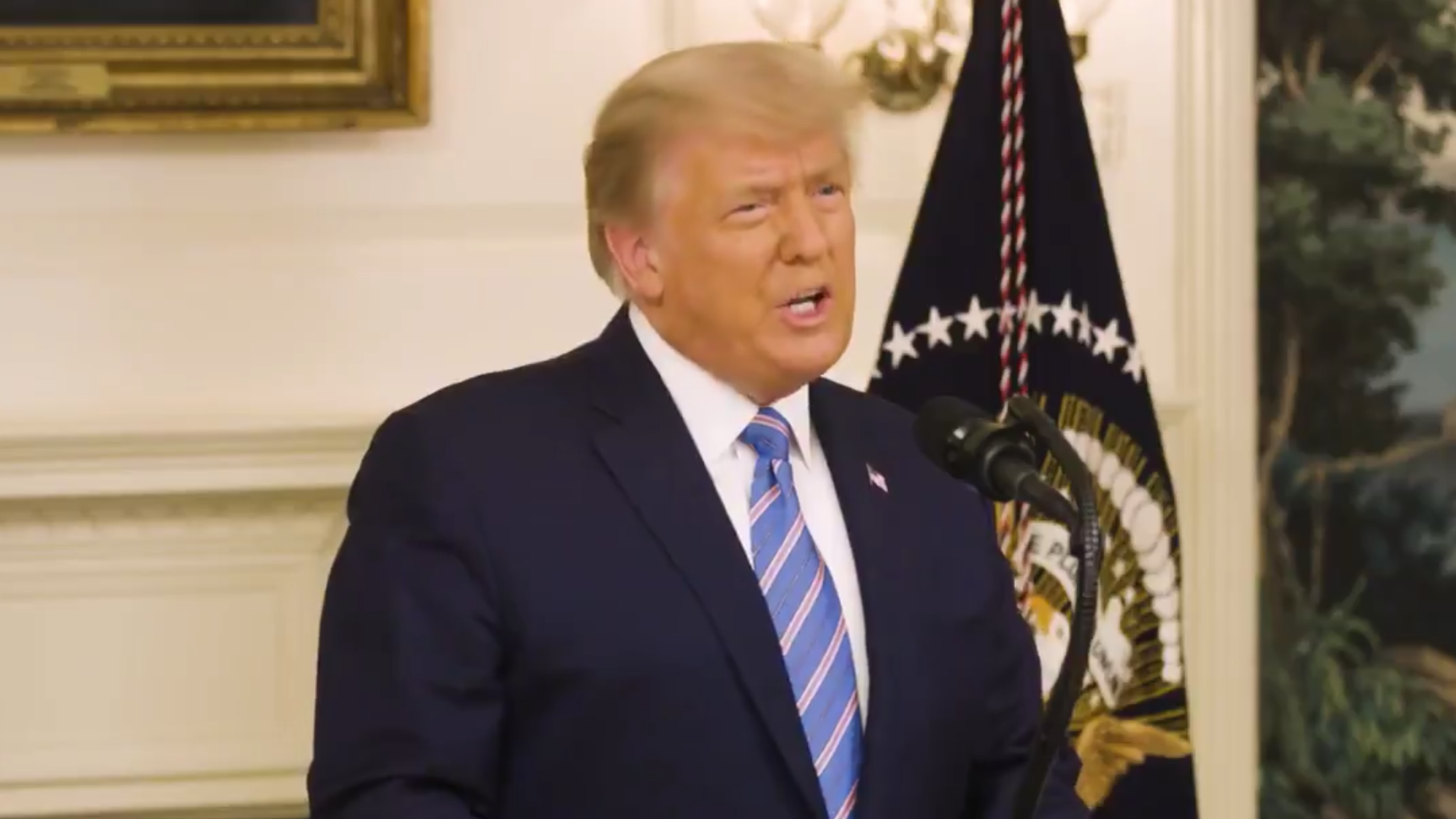
- Published7 January 2021
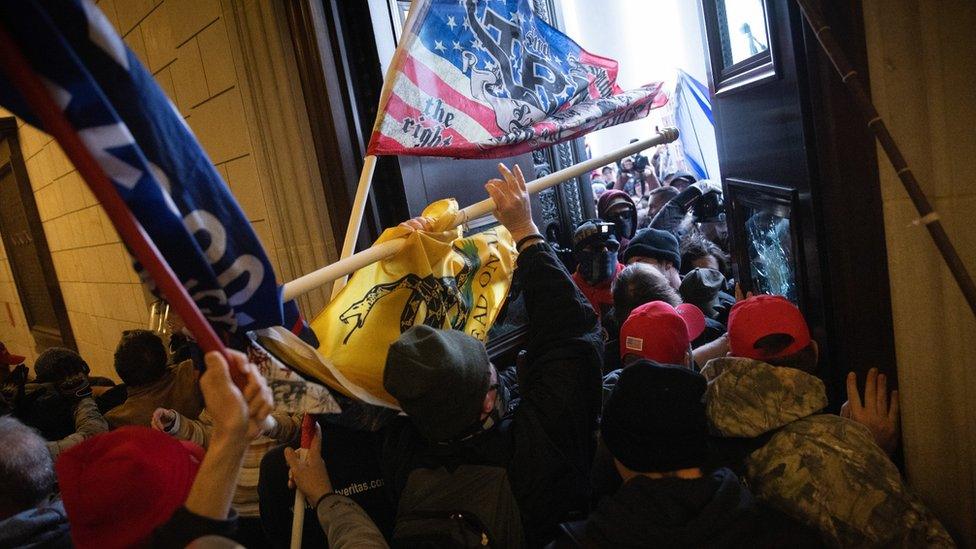
- Published23 December 2020
